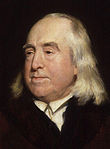1748
This article includes a list of references, but its sources remain unclear because it has insufficient inline citations. (January 2016) (Learn how and when to remove this template message) |
Millennium: | 2nd millennium |
|---|---|
Centuries: |
|
Decades: |
|
Years: |
|
| 1748 by topic |
|---|
Arts and Science |
|
Countries |
|
Lists of leaders |
|
Birth and death categories |
|
Establishments and disestablishments categories |
|
Works category |
|
| Gregorian calendar | 1748 MDCCXLVIII |
| Ab urbe condita | 2501 |
| Armenian calendar | 1197 ԹՎ ՌՃՂԷ |
| Assyrian calendar | 6498 |
| Balinese saka calendar | 1669–1670 |
| Bengali calendar | 1155 |
| Berber calendar | 2698 |
| British Regnal year | 21 Geo. 2 – 22 Geo. 2 |
| Buddhist calendar | 2292 |
| Burmese calendar | 1110 |
| Byzantine calendar | 7256–7257 |
| Chinese calendar | 丁卯年 (Fire Rabbit) 4444 or 4384 — to — 戊辰年 (Earth Dragon) 4445 or 4385 |
| Coptic calendar | 1464–1465 |
| Discordian calendar | 2914 |
| Ethiopian calendar | 1740–1741 |
| Hebrew calendar | 5508–5509 |
| Hindu calendars | |
| - Vikram Samvat | 1804–1805 |
| - Shaka Samvat | 1669–1670 |
| - Kali Yuga | 4848–4849 |
| Holocene calendar | 11748 |
| Igbo calendar | 748–749 |
| Iranian calendar | 1126–1127 |
| Islamic calendar | 1160–1162 |
| Japanese calendar | Enkyō 5 / Kan'en 1 (寛延元年) |
| Javanese calendar | 1672–1673 |
| Julian calendar | Gregorian minus 11 days |
| Korean calendar | 4081 |
| Minguo calendar | 164 before ROC 民前164年 |
| Nanakshahi calendar | 280 |
| Thai solar calendar | 2290–2291 |
| Tibetan calendar | 阴火兔年 (female Fire-Rabbit) 1874 or 1493 or 721 — to — 阳土龙年 (male Earth-Dragon) 1875 or 1494 or 722 |
| Wikimedia Commons has media related to 1748. |

October 12: Battle of Havana
1748 (MDCCXLVIII)
was a leap year starting on Monday of the Gregorian calendar and a leap year starting on Friday of the Julian calendar, the 1748th year of the Common Era (CE) and Anno Domini (AD) designations, the 748th year of the 2nd millennium, the 48th year of the 18th century, and the 9th year of the 1740s decade. As of the start of 1748, the Gregorian calendar was
11 days ahead of the Julian calendar, which remained in localized use until 1923.
Contents
1 Events
1.1 January–June
1.2 July–December
1.3 Date unknown
2 Births
3 Deaths
4 References
5 Further reading
Events
January–June
January 12 – Ahmad Shah Durrani captures Lahore.[1]
March 11 – In battle near Manupur (15 kilometres (9.3 mi) northwest of Sirhind), Mughal forces under Prince Ahmad Shah Bahadur are victorious against Ahmad Shah Durrani.
March 28 – A fire in the City of London causes over a million pounds worth of damage.
April 15 – The Siege of the Dutch fortress of Maastricht is started by French under the command of Maurice de Saxe as part of the War of the Austrian Succession. The fortress falls on May 7 after a little more than three weeks.
April 24 – War of the Austrian Succession: A congress assembles at Aix-la-Chapelle (Aachen), with the intent to conclude the war.
July–December
August – The Camberwell beauty butterfly is named after specimens found at Camberwell in London.
September 24 – Shah Rukh becomes ruler of Greater Khorasan.
October 12 – War of Jenkins' Ear – Battle of Havana: a British Caribbean squadron engage a Spanish squadron based near Havana.[2]
October 18 – War of the Austrian Succession: The Treaty of Aix-la-Chapelle is signed to end the war. Great Britain obtains Madras, in India, from France, in exchange for the fortress of Louisbourg in Canada.
Date unknown
Leonhard Euler publishes Introductio in analysin infinitorum, an introduction to pure analytical mathematics, in Berlin.
Montesquieu publishes De l'esprit des lois.
Friedrich Gottlieb Klopstock publishes the first three cantos of his epic poem Der Messias in hexameters (anonymously), in Bremer Beiträge (Leipzig).
Adam Smith begins to deliver public lectures in Edinburgh.- The Royal Swedish Academy of Sciences makes Eva Ekeblad its first female member.
- Construction of the Sveaborg fortification begins near Helsinki.
- The ruins of Pompeii are rediscovered.
Louis XV of France breaks his promise to eliminate the income tax, after the Treaty of Aix-la-Chapelle ends the war. The Parlement of Paris protests, so he reduces the tax to 5%.[3]
Births
January 19 – Antonio Carnicero, Spanish painter (d. 1814)
February 2 – Adam Weishaupt, German founder of the Order of the Illuminati (d. 1811)
February 9 – Luther Martin, American politician (d. 1826)

Jeremy Bentham
February 15 – Jeremy Bentham, English philosopher, writer (d. 1832)
February 22 – Timothy Dexter, American businessman (d. 1806)
February 27 – Anders Sparrman, Swedish naturalist (d. 1820)
March 5
William Shield, English violinist, composer (d. 1829)
Jonas C. Dryander, Swedish botanist (d. 1810)
March 8 – William V, Prince of Orange (d. 1806)
March 10 – John Playfair, Scottish scientist (d. 1819)
April 12 – Antoine Laurent de Jussieu, French botanist (d. 1836)
April 13 – Joseph Bramah, English inventor, locksmith (d. 1814)
April 27
Pierre-Louis Ginguené, French author (d. 1816)
Adamantios Korais, Greek scholar (d. 1833)
May 3 – Emmanuel Joseph Sieyès, French cleric, constitutional theorist (d. 1836)
May 7 – Olympe de Gouges, French playwright (d. 1793)
May 10 – Louis Jean Pierre Vieillot, French ornithologist (d. 1830)
May 28 – Frederick Howard, 5th Earl of Carlisle (d. 1825)
June 8 – William Few, American politician (d. 1828)
June 30 – Jacques Dominique, comte de Cassini, French astronomer (d. 1845)
August 8 – Johann Friedrich Gmelin, German naturalist (d. 1804)

Jacques-Louis David
August 30 – Jacques-Louis David, French painter (d. 1825)
October 7 – King Charles XIII of Sweden (Charles II of Norway) (d. 1818)
October 13 – Johann Dominicus Fiorillo, German painter, art historian (d. 1821)
October 19 – Martha Wayles Skelton Jefferson, wife of Thomas Jefferson (d. 1782)
November 11 – King Charles IV of Spain (d. 1819)
November 13 – William Chalmers, Swedish merchant (d. 1811)
December 9 – Claude Louis Berthollet, French chemist (d. 1822)
December 14 – William Cavendish, 5th Duke of Devonshire (d. 1811)
date unknown
Gioacchino Navarro, Maltese priest and poet (d. 1813)
James Sayers, English caricaturist (d. 1823)
Timur Shah, Afghan king (d. 1793)
Thomas Holloway, English portrait painter, engraver (d. 1827
Stylianos Vlasopoulos, Greek judge, writer (d. 1822)
Deaths
January 1 – Johann Bernoulli, Swiss mathematician (b. 1667)
January 16 – Arnold Drakenborch, Dutch classical scholar (b. 1684)
February 18 – Otto Ferdinand von Abensberg und Traun, Austrian field marshal (b. 1677)
March 7 – Élisabeth Thérèse de Lorraine, French noblewoman, Princess of Epinoy by marriage (b. 1664)
March 14 – George Wade, British military leader (b. 1673)
March 23 – Johann Gottfried Walther, German music theorist, organist, and composer (b. 1684)

William Kent
April 8 – Qing Dynasty Empress Xiaoxianchun (b. 1712)
April 12 – William Kent, English architect (b. c. 1685)
April 16 – Muhammad Shah, Mughal emperor of India (b. 1702)
May 12 – Thomas Lowndes, British astronomer (b. 1692)
May 17 – Henri, Duke of Elbeuf, member of the House of Lorraine (b. 1661)
June 16 – Jean Philippe d'Orléans, illegitimate son of future French regent Philippe d'Orleans (b. 1702)
June 28 – Marretje Arents, Dutch rebel leader (b. 1712)
August 27 – James Thomson, Scottish poet (b. 1700)
September 6 – Edmund Gibson, English jurist (b. 1669)
September 10 – Mother Ignacia del Espíritu Santo, Filipino founder of the Congregation of the Religious of the Virgin Mary (b. 1663)
September 12 – Anne Bracegirdle, English actress (b. c. 1671)
September 21 – John Balguy, English philosopher (b. 1686)
November 25 – Isaac Watts, English hymn writer (b. 1674)
December 2 – Charles Seymour, 6th Duke of Somerset, English politician (b. 1662)
References
^ "Ahmad Shah Abdali's invasions". Retrieved 2011-11-02..mw-parser-output cite.citationfont-style:inherit.mw-parser-output .citation qquotes:"""""""'""'".mw-parser-output .citation .cs1-lock-free abackground:url("//upload.wikimedia.org/wikipedia/commons/thumb/6/65/Lock-green.svg/9px-Lock-green.svg.png")no-repeat;background-position:right .1em center.mw-parser-output .citation .cs1-lock-limited a,.mw-parser-output .citation .cs1-lock-registration abackground:url("//upload.wikimedia.org/wikipedia/commons/thumb/d/d6/Lock-gray-alt-2.svg/9px-Lock-gray-alt-2.svg.png")no-repeat;background-position:right .1em center.mw-parser-output .citation .cs1-lock-subscription abackground:url("//upload.wikimedia.org/wikipedia/commons/thumb/a/aa/Lock-red-alt-2.svg/9px-Lock-red-alt-2.svg.png")no-repeat;background-position:right .1em center.mw-parser-output .cs1-subscription,.mw-parser-output .cs1-registrationcolor:#555.mw-parser-output .cs1-subscription span,.mw-parser-output .cs1-registration spanborder-bottom:1px dotted;cursor:help.mw-parser-output .cs1-ws-icon abackground:url("//upload.wikimedia.org/wikipedia/commons/thumb/4/4c/Wikisource-logo.svg/12px-Wikisource-logo.svg.png")no-repeat;background-position:right .1em center.mw-parser-output code.cs1-codecolor:inherit;background:inherit;border:inherit;padding:inherit.mw-parser-output .cs1-hidden-errordisplay:none;font-size:100%.mw-parser-output .cs1-visible-errorfont-size:100%.mw-parser-output .cs1-maintdisplay:none;color:#33aa33;margin-left:0.3em.mw-parser-output .cs1-subscription,.mw-parser-output .cs1-registration,.mw-parser-output .cs1-formatfont-size:95%.mw-parser-output .cs1-kern-left,.mw-parser-output .cs1-kern-wl-leftpadding-left:0.2em.mw-parser-output .cs1-kern-right,.mw-parser-output .cs1-kern-wl-rightpadding-right:0.2em
^ Thomas p 263
^ H. Parker Willis (December 1895). "Income Taxation in France". Journal of Political Economy. The University of Chicago Press. 4 (1): 37–53. doi:10.1086/250324.The war of the Austrian Succession for the third time threw the treasury back upon the hated fiscal resource in October of 1741, when the income tax was reintroduced accompanied by a royal promise to the effect that upon the close of the war this means of raising revenue should once for all be done away with.
Further reading
John Blair; J. Willoughby Rosse (1856). "1748". Blair's Chronological Tables. London: H.G. Bohn – via Hathi Trust.
